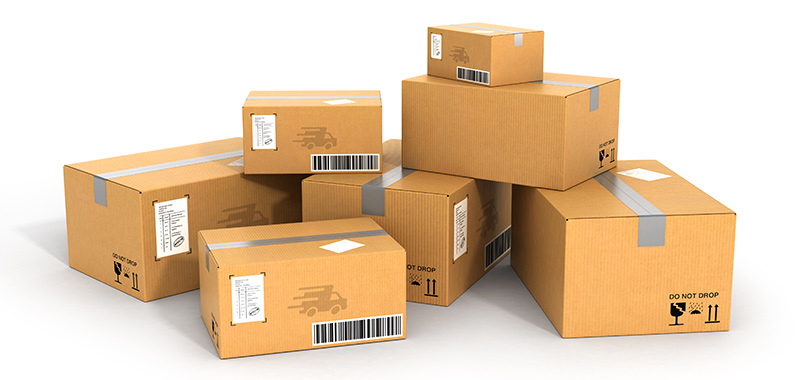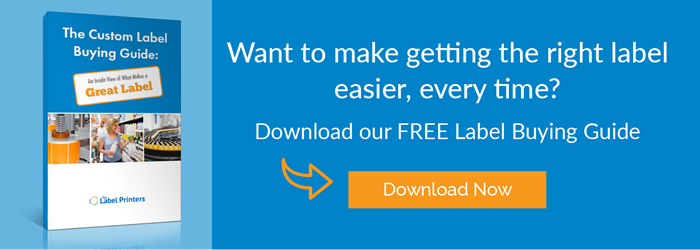
A shift away from traditional retail has been underway for a while now as consumers of all generations embrace the convenience and savings of e-commerce. But the coronavirus pandemic has made many brick-and-mortar stores scramble to get their e-commerce storefronts up and running.
And while there is plenty of great advice out there on how to build an attractive and functional e-commerce store, there remains the issue of getting your product to your customers.
Will you need address labels? Of course. But there are plenty of things to consider aside from that. The right label and packaging choices can improve customer satisfaction, strengthen your branding, and even help you reduce losses and chargebacks.
Here are some product label pointers to consider as your brand transitions to e-commerce:
Think Beyond the Brown Box
Even though customers won’t see your product in person before buying it, appearances still matter. As countless unboxing videos on YouTube and social media demonstrate, the visual and tactile experience when receiving and unpacking an online purchase is important to your customers.
Leading e-commerce purveyors invest heavily in packaging that transforms the simple act of opening a box into a premium experience. Emmy Corman, the package design engineer for Dollar Shave Club says that “unboxing is the new shelf presence.”
“Product presentation as the consumer opens the box is essential—it needs to look neat and convey that it has been packed with care,” she told Packaging Digest.
Your product packaging – including your labels – should match your brand identity and the values of your customers.
For example, if your brand is known for its environmental stewardship, you might choose recyclable or renewable materials for your label and packaging. If customers love your quirky sense of fun, you might select label materials and inks that pop with bold colors.
Prioritize Durability
When you deliver your products to stores, they’re often grouped with similar products and handled by professionals (or even yourself) who know which side is up.
In e-commerce, shipping can be much rougher. Products may be thrown together in boxes with unrelated products that can crush and puncture them. Delivery and warehouse personnel can toss boxes around with no regard for the fragility of their contents.
The problem is compounded by the fact that for many e-commerce products, shipping is a two-way trip. On average, 20% of online orders are returned.
E-commerce merchants put a lot of thought into designing packaging that will protect their products from the fulfillment center to the front door and – and back, if necessary. But as you load up your boxes with (hopefully biodegradable) packing peanuts, consider the durability of your product labels, as well.
Rough handling, damp environments, and rapid temperature changes can cause labels to peel, rip, and smudge. The result can be off-putting to buyers and disastrous for shipping. If the shipping labels fall off your products or become unreadable, your products may not reach their final destinations.
An experienced label printer will be able to help you choose label materials, adhesives, and inks that will withstand the tumultuous journeys e-commerce products must endure.
Introduce Tracking and Security Elements
The e-commerce supply chain can be substantially more complex than the traditional retail supply chain. Instead of a handful of endpoints – stores that sell your products – you have thousands – each individual customer.
Tracking labels can help you make sure your products get where they need to go. Technology such as barcodes and RFID tags can be scanned at each step in the supply chain, giving you a complete picture of your distribution network and preventing unauthorized sales on the gray market. Tracking labels can also be a powerful weapon against chargebacks. A chargeback is when a cardholder files a claim against a questionable transaction on their credit card statement. If your item wasn’t received (or if the customer fraudulently claims it wasn’t received and you have no proof to the contrary), you’re out the money and the item. Proper tracking can greatly reduce the odds of this happening.
Counterfeiting is also a concern in e-commerce. Online shopping platforms have made it easier than ever before to get fake products into the hands of consumers. But you can protect the authenticity of your products, the safety of your customers, and the integrity of your brand with product labels designed to defy reproduction and identify genuine items.
Security labels can be either overt (easy to identify but somewhat difficult to replicate) or covert (hard to find without the right tools). Learn more in our recent series on brand protection.
Your Partner in the World of E-Commerce
Whether the current pandemic ends soon (we hope!) or lasts for months, competition in the e-commerce market is sure to heat up in almost every product category.
An experienced label printer that understands the challenges and opportunities of e-commerce can help your brand stand out and continue to deliver the high-quality products and experiences your customers have come to expect.
Click here to contact the e-commerce experts at The Label Printers. As an essential business, we are open during the Illinois Stay-At-Home directive.

